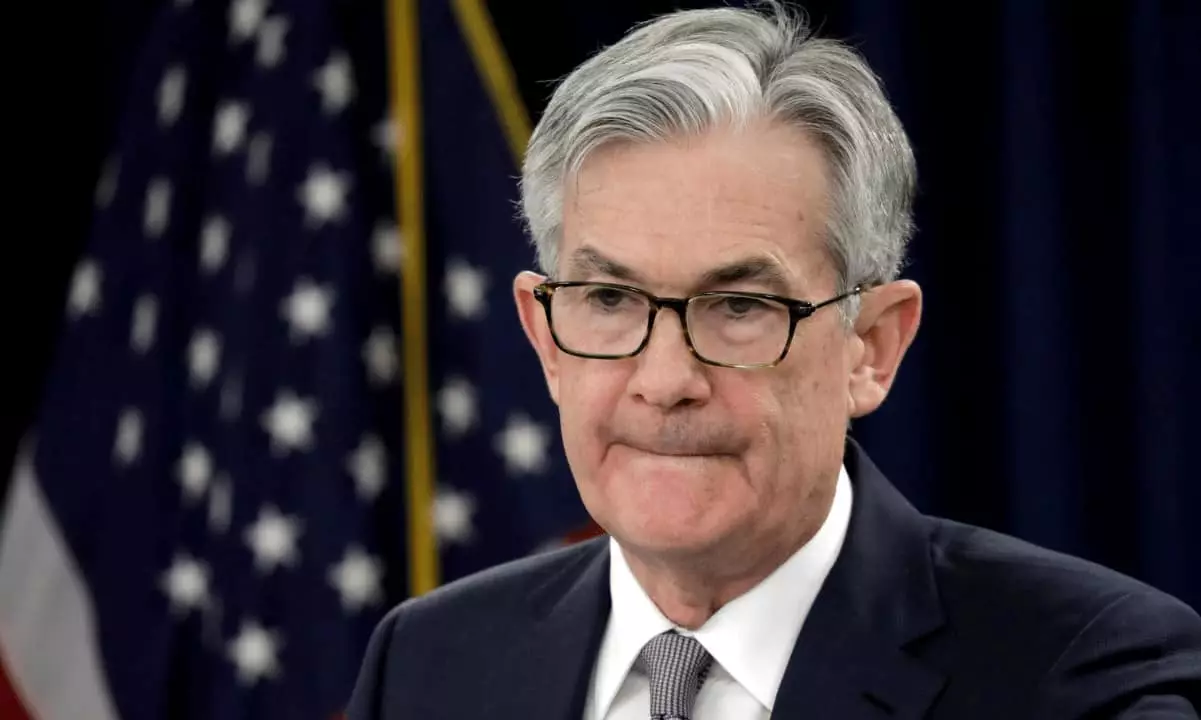In recent discussions surrounding the impact of Bitcoin and other cryptocurrencies on the global financial landscape, Federal Reserve Chairman Jerome Powell has firmly positioned himself against the notion of Bitcoin superseding the U.S. dollar. During a thought-provoking exchange at The New York Times DealBook Summit, Powell characterized Bitcoin more as a speculative commodity akin to gold than as a practical substitute for traditional currencies. His insights come at a critical time when Bitcoin has surged in popularity and market capitalization, raising questions about its legitimacy and potential as a viable alternative to fiat currency.
Powell’s commentary reflects a skepticism that has been central to the Federal Reserve’s stance on cryptocurrencies. His assertion that Bitcoin should be viewed through the lens of speculation rather than stability emphasizes its notorious volatility. With its value fluctuating dramatically, Bitcoin does not meet the established criteria for a dependable store of value or a reliable medium of exchange. Rather, Powell’s analogy of Bitcoin being “like gold, only it’s virtual” underscores the continued association of cryptocurrencies with investment risk rather than economic utility.
The notion that Bitcoin serves as a refuge for those disillusioned with the U.S. dollar appears unfounded to Powell. Instead, he suggests that the increasing interest in Bitcoin has more to do with market speculation than a fundamental distrust in government-backed currency. This viewpoint raises critical discussions about what drives investor confidence and the growing allure of decentralized finance, especially in times of economic uncertainty.
With Bitcoin’s recent surge, which has catapulted its market capitalization past $2 trillion, the cryptocurrency has captivated both mainstream and institutional investors. However, despite its rising status—now ranked as the seventh-largest asset worldwide—Powell’s comparison to gold reminds stakeholders that Bitcoin’s poker-game-like characteristics can deter its acceptance in broader economic frameworks. The stark contrast between Bitcoin’s valuation of around $2 trillion and gold’s staggering $18 trillion market cap reveals the speculative nature of cryptocurrencies, evident during times when both leverage the same supply and demand principles yet yield vastly different levels of trust and stability.
Repeat concerns regarding Bitcoin and its role in global finance have culminated in intensified regulatory scrutiny. Critics argue that the Federal Reserve’s apparent disinterest in fostering a conducive environment for cryptocurrencies could stall innovation within the space. Amidst these discussions, Powell’s consistent critique echoes a broader hesitation within governmental entities, prompting industry leaders like Galaxy Digital CEO Mike Novogratz to express concern over potential stifling of market growth due to conservative regulatory frameworks.
The debate surrounding Bitcoin is intricately linked to overarching issues of regulation and the future landscape of the financial industry. Under Biden’s administration, the Federal Reserve has faced allegations related to “Operation Chokepoint 2.0,” accused of implementing strategies that could undermine the burgeoning cryptocurrency sector by restricting traditional banking access to crypto firms. These claims were reawakened following directives aimed at Customers Bank, demonstrating the heightened apprehensions surrounding regulatory action and its perceived impact on market viability.
The challenges faced by banks with crypto services are compounded by the fallout from incidents like the FTX collapse, which catalyzed a stricter regulatory environment. Federal agencies, including the OCC, FDIC, and Federal Reserve, have implemented measures discouraging traditional banks from dealing with cryptocurrency firms. This regulatory shift has seen notable crypto-friendly banks, such as Silvergate and Signature Bank, facing severe operational ramifications and ultimately closing down.
As the discourse around cryptocurrencies evolves, the need for a balanced approach between regulation and innovation becomes ever more apparent. Policymakers, regulators, and financial institutions must navigate the complexities of this digital transformation in a manner that encourages technological advancement while safeguarding the interests of everyday investors. The dichotomy between Powell’s cautionary stance and the buoyancy with which many see the future of cryptos presents a challenging landscape, wherein defining the role of assets like Bitcoin will dictate the next steps for both financial markets and regulatory frameworks.
While Powell’s insights may resonate with traditional fiscal prudence, the growing interest in cryptocurrencies invites a wider discussion regarding their potential future role in our economic systems. Understanding these dynamics will be crucial as society grapples with changing definitions of value, security, and investment strategy in an increasingly digital age.
















Leave a Reply